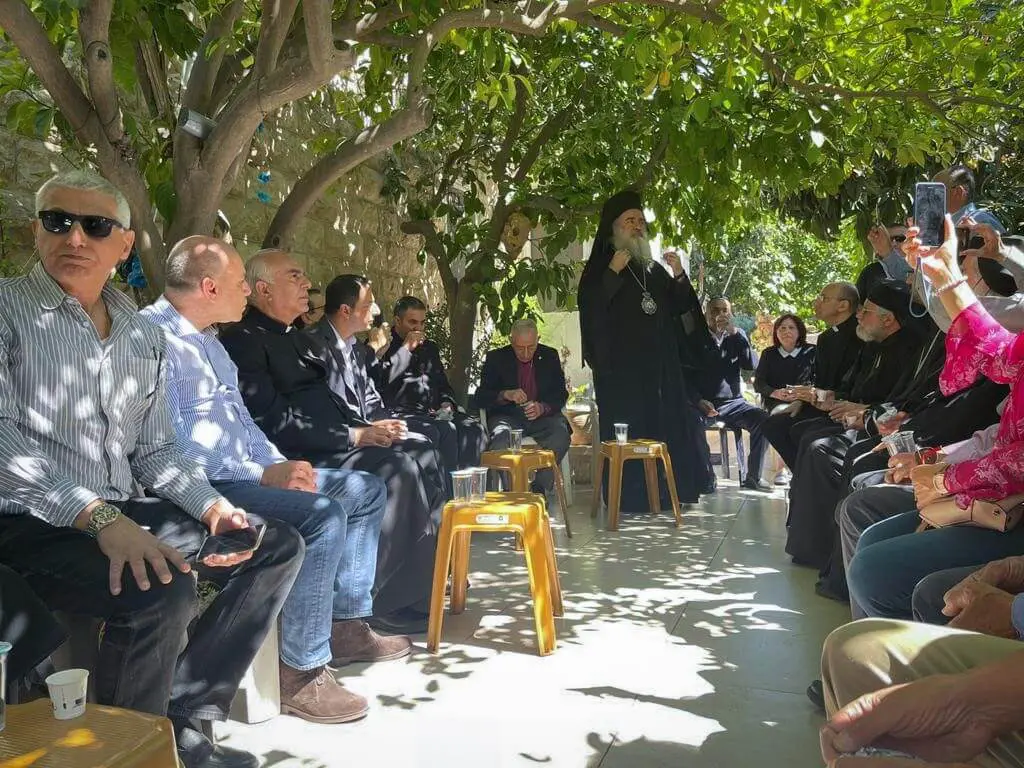After Patriarchs and Heads of Jerusalem Churches express concern for Al-Aqsa Mosque worshippers and Sheikh Jarrah families in a 9 May statement over the recent violence in East Jerusalem, World Council of Churches (WCC) acting general secretary Rev. Prof. Dr Ioan Sauca in a 12 May Statement on Israel and Palestine expressed mounting concern and profound grief at the rising toll of people killed and injured in the escalating violence in Israel and Palestine.
“We appeal urgently to all parties to step back from the brink of even more deadly and destructive conflict,” Sauca said. “We lament every one of the precious lives already lost, Palestinians and Israelis, in Gaza, in Ashkelon, near Lod, and elsewhere.”
During the demonstrations, tens of thousands of Muslims made their way to Ramadan prayers and activities at the al-Aqsa complex. Israeli police, saying Palestinians were throwing stones, stormed the building and courtyard on Monday with stun grenades and rubber-tipped bullets. Over 200 Palestinians and several officers were injured. Today, armed police clashed again with Muslim visitors.
Sauca urged people to put down their arms, and work to address the injustices and mutual antagonisms that sustain the recurrent cycles of violence. The proper response, instead of violence, should be compassion and justice for the Palestinian people affected by this unfair and unjust situation.
The Israeli army and Palestinian radicals in the Gaza Strip have been exchanging missile strikes since May 10, following the outbreak of violence near the Al-Aqsa mosque in Jerusalem’s Old City. More than 200 Palestinians have been killed since the escalation of conflict with Israel, while about 5,600 people have been injured, the Wafa News Agency stated on Sunday citing the Health Ministry of the coastal enclave. The Izz ad-Din al-Qassam Brigades, the armed wing of the Palestinian Hamas movement that controls the Gaza Strip, announced a new wave of massive rocket bombardments of Israeli cities and army bases in response to Israel’s strikes, the Gaza radicals said in a statement broadcast by the Sawt Al-Aqsa radio station on Monday.
The statement is in concert with the WCC’s Ecumenical Accompaniment Programme in Palestine and Israel (EAPPI), based on an appeal from local church leaders to create an international presence in the country, accompanies the local people and communities, offering protective presence and witnessing their daily struggles and hopes. EAPPI provides a continuous presence of 25-30 Ecumenical Accompaniers, who serve in the field for three months, accompanying local people and communities, offering a protective presence, and witnessing their daily struggles and hopes. EAPPI is guided by “principled impartiality”: it takes no side in the conflict nor discriminates against anyone, but it is not neutral in terms of human rights and respect for international humanitarian law. Almost 1800 hundred Ecumenical Accompaniers (EAs) have served through the programme, and many of them have stayed involved and interested in working toward a just peace in Palestine and Israel.
A Christian delegation visited the Sheikh Jarrah community on 14 May, standing in solidarity with 28 families who not only face the threat of eviction but are living their day-to-day lives under worsening oppression. Their community has become one with streets full of stones, cars with broken windows, and the smell of “skunk water” used by the police.
We can only solve it through religious peace.
A prominent Israeli orthodox rabbi Michael Melchior has charged that the deadly violence sweeping Israel and Gaza will not be resolved by military might: “We can only solve it through religious peace.”
Sheikh Imad Falogi, a former Hamas official in Gaza and close colleague of Melchior, says Muslims have no problem with people of the Jewish religion but feel disrespected by Israeli police and throngs of ultranationalist Israelis who visit al-Aqsa and are seen not as engaging in holy activities but as trying to take over “and create problems with Muslims.” When there are political problems, Falolgi adds, “the politicians should come to the rabbis and imams.”
Other Jewish, Muslim and Christian religious leaders in Israel, the West Bank and Gaza have also been calling for nonviolence and mutual respect.







